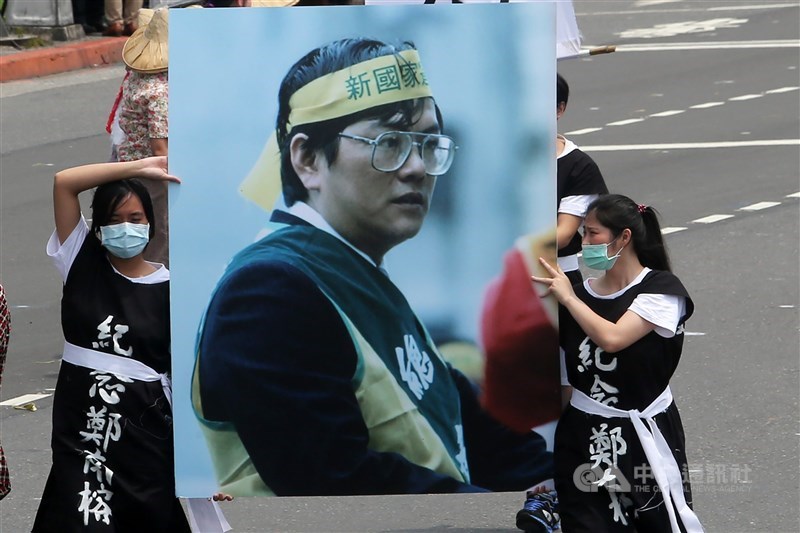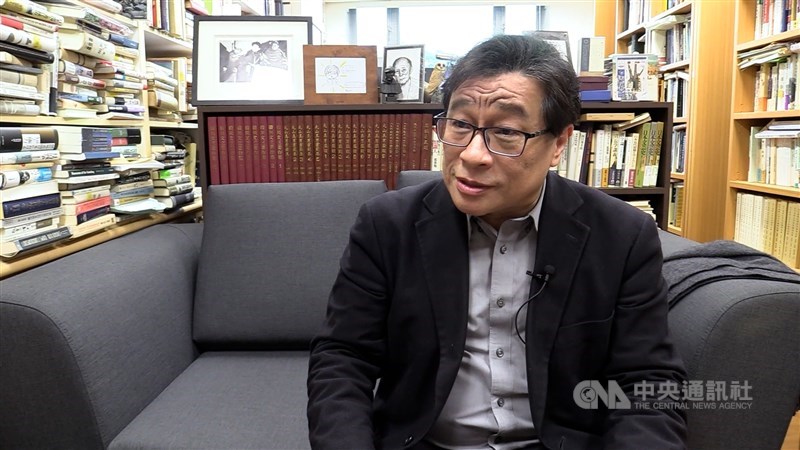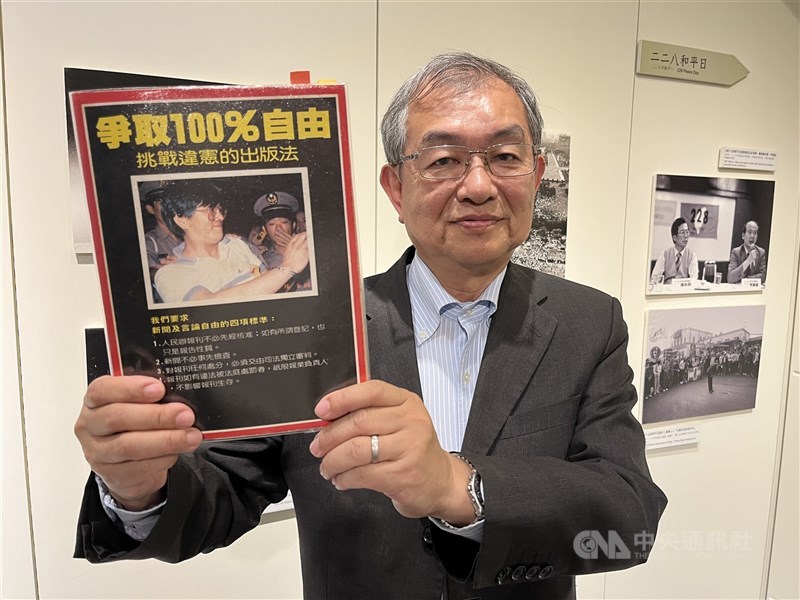
Taipei, April 7 (CNA) Since the self-immolation of publisher Nylon Cheng (鄭南榕) 35 years ago, Taiwan has evolved from a country constrained by strict anti-sedition laws into a global frontrunner in freedom of speech, but nevertheless, challenges remain in terms of upholding such rights.
In the 2024 edition of the "Freedom in the World" report by the United States-based NGO Freedom House, Taiwan secured second position in Asia -- behind Japan -- with 94 out of 100 total points and earned a perfect score in the category of "Freedom of Expression and Belief."
Freedom of speech in Taiwan is relatively stable in terms of legal provisions and political practice, with substantial safeguards in place, said Wu Rwei-ren (吳叡人), an associate research fellow at Academia Sinica.
"The situation now is quite different from over 30 years ago when Nylon Cheng sacrificed himself; at that time, it was a process of establishing freedom of speech from scratch," Wu told CNA, adding that Cheng's martyrdom had laid the foundation for Taiwan's democratization over the subsequent 30 years.
In January 1989, Cheng was charged with sedition after he reprinted a "Draft of the Republic of Taiwan Constitution" in Freedom Era Weekly magazine, of which he was editor-in-chief.
He refused to appear in court and when police went to the magazine's office in Taipei to arrest him on April 7, 1989, he committed suicide by self-immolation. His sacrifice contributed to the successive repeal of laws restricting free speech.
Growing concerns
Nowadays, Taiwan is ranked as one of the freest countries in the world. However, in recent years, Wu has also raised concerns about the state of freedom of speech in Taiwan, attributing his worries to the anonymity and algorithms of the internet, which have led to instances of netizens expressing opinions irresponsibly, and being unable to engage with others beyond their echo chambers.
"Despite having free speech, we don't seem to understand the responsibility that comes with exercising it. For example, it's vital to speak truthfully and be willing to listen to others and engage in dialogue," said the scholar.

Expressing concern about the situation, Wu observed that having freedom of speech today does not guarantee its perpetual existence: "There's a high likelihood that abuses of freedom of speech could eventually lead to the loss of freedom of speech."
As a scholar specializing in political theory, Wu considers freedom of speech itself to be a tool that facilitates communication between different members of society, who can then "identify common interests and foster the progress of that society."
"However, individuals nowadays often view their freedom of speech through an excessively selfish and individualistic lens, without considering the public responsibility that comes with it," Wu said.
A call for responsibility
Cheng Tsing-hua (鄭清華), the youngest brother of Nylon Cheng, expressed a similar opinion.
When Nylon Cheng established Freedom Era Weekly, a "Tangwai" (outside-the-party) magazine advocating political freedom and free speech during Taiwan's martial law era, he not only adopted "fight for 100 percent freedom" as the magazine's motto, but also declared his responsibility as editor-in-chief for all the articles that appeared, Cheng Tsing-hua pointed out.
Many people today -- whether expressing views on freedom of speech or sharing opinions -- overlook the gravity of being held responsible for expressing their opinions, said the 70-year-old.
"This is claiming to champion freedom of speech while actually undermining it," he added.

As a board member of Amnesty International Taiwan, an NGO dedicated to human rights issues, Cheng Tsing-hua noted that in a society with "100 percent freedom of speech," its members should understand how to utilize it in a proper manner.
"They need to know how to take responsibility for 100 percent freedom of speech and then truly create the value of 100 percent freedom of speech," he said. "If it's not done in this way, then our work is not yet complete."
Further reading
FEATURE / 35 years later, freedom of speech defender Nylon Cheng's legacy lives on
● Democracy, freedom values 'inherent in Taiwanese': President Tsai
- Society
Thousands of Muslims gather across Taiwan for Eid al-Fitr prayers
04/10/2024 05:13 PM - Politics
New Cabinet to respond to domestic, global challenges: Lai
04/10/2024 04:55 PM - Society
Electronic pet ID card launched by agriculture ministry
04/10/2024 04:51 PM - Business
U.S. dollar closes lower on Taipei forex market
04/10/2024 04:11 PM - Business
TSMC reports highest sales for Q1
04/10/2024 03:52 PM